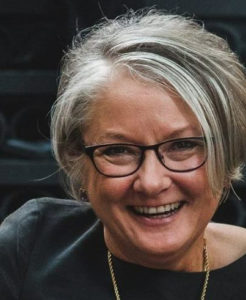Nell Green needed no prodding when asked for an interview about Robert Kraft, the New England Patriots owner recently charged with soliciting prostitution in a Florida massage parlor suspected as a human trafficking site.
“Don’t get me started,” she said.

Nell Green
Green and her husband, Butch, are Cooperative Baptist field personnel based in Houston, where their ministry focus includes helping victims of the trade in human beings for sex and labor in Texas and beyond.
While human trafficking comes in different forms, it usually boils down to the rich exploiting the vulnerable.
Kraft has pleaded not guilty to two counts of solicitation following an investigation into what Martin County, Florida officials describe as a global sex trade operation.
It’s why Green said she wasn’t surprised to hear about the Kraft case.
“’Duh,’” Green said. “That’s really what I thought.”
What is surprising, she added, is only in 2019 is society finally taking notice of human trafficking and sexual exploitation.
“It has taken the #MeToo movement to go wait a minute, maybe this isn’t OK. I find that amazing, really, that it’s taken this long.”
Green spoke with Baptist News Global recently about the Kraft situation and the ugly world of human trafficking that it uncovers.
How did you and Butch come to have human trafficking as part of your field personnel focus?
Before we moved to Houston, we were involved in human trafficking awareness and what it looks like globally when we served in Third World countries. When we moved to Houston eight years ago, it became so obvious it was a huge issue here. We said OK, we need to address this domestically. It still is about awareness, but it has also become more than that.
What was so obvious about it?
The Department of Justice has said one-in-four human trafficking victims in the United States comes through Houston sometime in their experience of being trafficked. It’s the number one corridor for human trafficking. Literally, illicit massage parlors are just everywhere. The porn industry is front and center here.
How has the issue become more than an awareness initiative for you?
We helped found the Coalition to Combat Human Trafficking (in Texas Gateway/Destination Cities). As we began investigating the issue of human trafficking here, we found there was a big hole where labor trafficking was concerned. Everybody is about the sex trafficking, but that is only a quarter of human trafficking. Three-quarters of it is labor trafficking. We also helped identify that need.
What is it about Houston that makes it front-and-center on this issue?
You have to start at the border. The people stranded on the border are primary targets and vulnerable to human traffickers. We need to get them help and get them awareness before they get trafficked. So, we are providing our partners on the border food packets that include information about how a trafficker might approach them and the signs to be aware of, and the national trafficking hotline number. We are working with other partners on a PSA for detention centers and other places where vulnerable populations might be, including homeless centers.
What is a typical approach a trafficker might make?
“Hey, I have a really great job for you and I can help you get across the border without getting caught.” Or they might say, “Hey, I need help in my restaurant in San Antonio or Houston. You would be perfect for that. If you would give me your documents and your papers I can expedite that.”
Is it common for those promises to turn into threats against them or family?
Yes. The key for it to be considered human trafficking is there has to be force, fraud or coercion involved. “I will kidnap your baby” or “I will kill your mother.” That has to be in play for it to legally be human trafficking.
How does the #MeToo movement figure into this?
The whole thing about the sexual exploitation and the #MeToo movement is that just because you have money and you have power does not mean you get to use that to prey upon the vulnerabilities of women and others who do not have that at their disposal.
What we want to say in this instance is: “Oh well, he was legitimately paying for a sexual service. That’s not exploitation.” Well, I’m sorry, it is. The average age for entering the sex industry is 12 to 15. If you are under the age of 18 you are a child and that, legally, is sex trafficking. You are exploiting their vulnerability. You are using them for your own sexual gratification.
Are you glad the charges against Kraft have resulted in a national conversation about human trafficking?
Absolutely. But I don’t want anyone to miss the fact that even if, technically or legally, it’s not trafficking, it nevertheless is sexual exploitation. And people exploit when they have power and when they think they can get away with it.
What can individuals and churches do about these situations in their communities?
First and foremost, educate yourself on what it is and what it looks like and if you see something then do something. Watch the Be The One documentary. It shows how average citizens going about their daily lives saw something and said something and as a result victims were rescued and trafficking operations were shut down. It’s really that simple. Be willing to make authorities aware of it. Put the national human trafficking hotline number in your phone and if you see something and you’re not sure, call them. That number is (888) 373-7888.
So, is human trafficking a two-word term for slavery?
Yes. Absolutely. And we allow that in our society. Even if you can’t take it to a courtroom and prosecute, it is nevertheless exploitation and a misuse of humanity.
I told you, don’t get me started.
